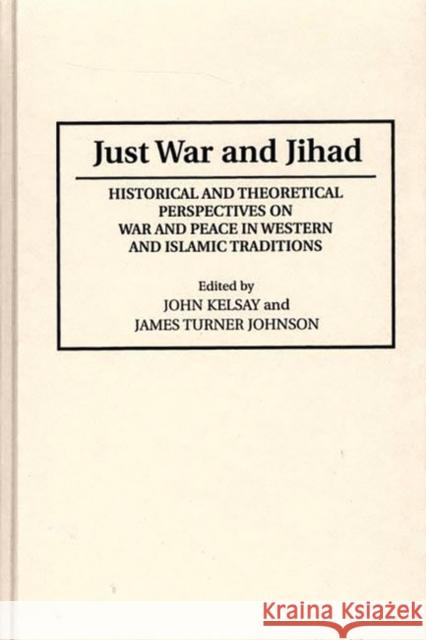Just War and Jihad: Historical and Theoretical Perspectives on War and Peace in Western and Islamic Traditions » książka
Just War and Jihad: Historical and Theoretical Perspectives on War and Peace in Western and Islamic Traditions
ISBN-13: 9780313273476 / Angielski / Twarda / 1991 / 272 str.
Just War and Jihad: Historical and Theoretical Perspectives on War and Peace in Western and Islamic Traditions
ISBN-13: 9780313273476 / Angielski / Twarda / 1991 / 272 str.
(netto: 361,12 VAT: 5%)
Najniższa cena z 30 dni: 376,07
ok. 30 dni roboczych.
Darmowa dostawa!
In this collaborative examination two diverse groups of scholars look at Western and Islamic approaches to war, peace, and statecraft from their own perspectives in an effort to bridge the gap of knowledge and understanding between the two traditions. Established scholars in religious ethics and international law--James Turner Johnson, John Langan, David Little, and William V. O'Brien--examine the substantial body of literature on the just war tradition that has been produced over time by historians, theologians, ethicists, and international lawyers. The Islamic tradition, which in both its classical and contemporary forms presents a rich variety of materials for discussions of statecraft, including issues connected with the justification, conduct, and ultimate aims of war, is then assessed by a group of leading Islamicists including Fred Donner, Richard C. Martin, Bruce Lawrence, and Ann Mayer. The two major themes stressed by the contributors are the historical and theoretical approaches to war and peace in the two great religious and cultural traditions. In every case, the chapters are broadly historical and comparative in nature. Kelsay and Johnson's Just War and Jihad, together with their companion volume, "Cross-Crescent and Sword: The Justification and Limitation of War in Western and Islamic Tradition" (Greenwood Press, 1990), represent the outcome of interdisciplinary and cross-cultural dialogues.
An introduction takes up the various themes present in the chapters and reflects their significance for comparative studies of cultural attitudes on war and peace. In the book's first major division four chapters deal with foundational concerns. Here the authors identify sources and basic themes of religious thought that influence Western and Islamic approaches to war and peace. The two chapters of Part II take up particular questions connected with the phenomenon of holy war. In the final section two contributors assess the status of the international law on war and peace. For students and scholars of comparative religion, ethics, and international relations this comparative study, which establishes the persistence of certain human concerns across the boundaries of particular cultures, makes timely and important reading.











